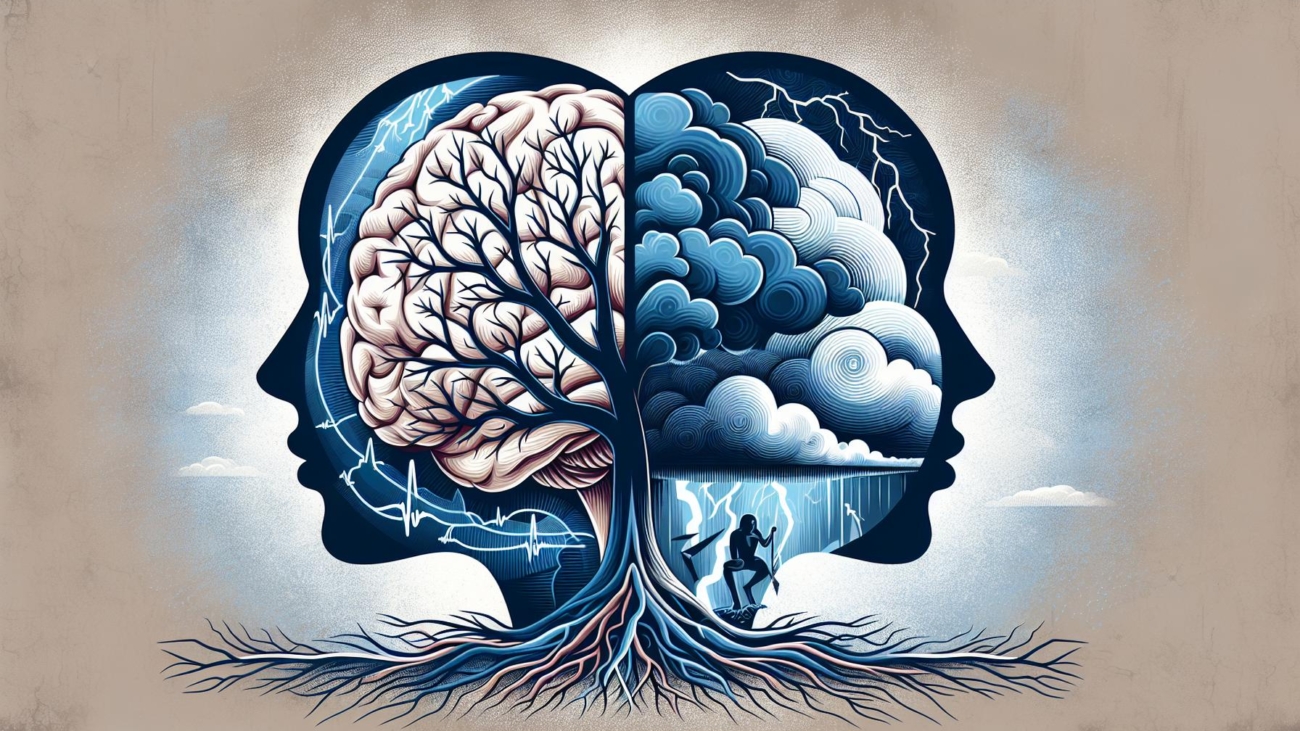A study published in the medical journal of the American Academy of Neurology, Neurology®, reveals that middle-aged individuals with chronic traumatic encephalopathy (CTE) and a family history of mental illness are at an increased risk of exhibiting aggressive behavior. CTE, a brain disease typically linked to repeated head injuries, is often observed in athletes and military personnel and can result in mood swings and dementia.
Dr. Jesse Mez, the lead author of the study and a member of the American Academy of Neurology from Boston University’s Chobanian & Avedisian School of Medicine, explains that the combination of CTE and a family history of mental illness significantly heightens the risk of aggressive behavior, more so than each factor independently.
The study involved 845 men, all of whom had been exposed to repetitive head impacts through contact sports or military service, with 329 participants being professional football players. All participants had donated their brains for research post-mortem, with the average age at death being 60 years. Of these, 70% (589 individuals) had CTE, and 45% (383 individuals) had a familial history of mental illness.
Family members and spouses of the participants were interviewed about the individuals’ aggressive behaviors and whether any relatives suffered from psychiatric disorders such as major depression, bipolar disorder, anxiety, post-traumatic stress disorder, obsessive-compulsive disorder, or other mood disorders. If any family members had such a diagnosis, the participant was considered to possess a family history of mental illness.
The study population was then divided into four groups based on their CTE diagnosis and family history of mental illness. The researchers found that adults with both CTE and a family history of mental illness scored higher on measures of aggression than their counterparts with CTE but no family history of mental illness.
Dr. Mez further commented that this relationship was particularly noticeable for individuals who passed away between the ages of 40 and 59. After adjusting for factors such as years of contact sports and military history, the study found that individuals in this age group with CTE and a family history of mental illness scored significantly higher on aggression scales.
According to Dr. Mez, the link between family history of mental illness and aggression may be attributed to shared genetics, environment, and behaviors, including childhood experiences with family members. Recognizing individuals more susceptible to aggressive symptoms based on family mental health history could help predict CTE implications and pinpoint those who would most benefit from treatment options.
The study, however, acknowledged its limitations, including reliance on retrospective information from family members and spouses, which may not have been accurately recalled. Funding for the study was provided by the National Institutes of Health, the Department of Veterans Affairs, and the Nick and Lynn Buoniconti Foundation.
